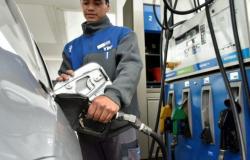Berkshire Hathaway operational profits fell around 14% compared to the previous year and their cash reserve increased to a record of US $ 347.7 billion while the conglomerate struggled to put money to work in the midst of tariff uncertainty.
Berkshire’s operational profitsled by executive director Warren Buffett, They fell to US $ 9.6 billion, the conglomerate said in a statement on Saturday.
“There is considerable uncertainty regarding the final result of these events,” Berkshire said in the statement, referring to international commercial policies and tariffs. Buffet approached the tariffs more directly at the company’s annual meeting in Omaha, Nebraska.
“I think there can be very good arguments to affirm that balanced trade benefits the world,” Buffett said at the meeting. “There is no doubt that trade can be an act of war.” He added that the United States “should seek to trade with the rest of the world.”
Berkshire He said that most of their businesses generated lower income and profits in the first quarter. For Cathy Seifert, an analyst at CFRA Research, this could indicate that the economy in general is slowing down.
“What we are seeing here is Berkshire’s exhibition to the economy in general, which is slowing down”Seifert said in an interview.
The company refused to repurchase own actions for the third consecutive quarter. This could mean that the price of the action is “too high for Berkshire’s taste,” said Seifert. At the end of March, the five largest participations of the company were still American Express, Apple, Bank of America, Coca-Cola and Chevron
Berkshire Hathaway It was a net seller of US $ 1.5 billion in variable income values in the quarter, according to the statement. Investment income of the insurance unit increased 11% to US $ 2.9 billion, driven by an increase of 31% in interest and other investment income because the conglomerate had more Treasury letters.
Geico, the Berkshire car insurer, recorded an increase in their profits thanks to the continuous incorporation of customers. The expenses also increased, since the insurer seeks to gain market share.
The subscription gains of the insurance unit were almost reduced by half in the quarter, partly due to approximately US $ 860 million losses after taxes related to California forest fires.
The Berkshire market value has exceeded US $ 1 billion since the end of January, reaching an accounting price-value of US $ 1.79 at the close of Friday’s operations.






